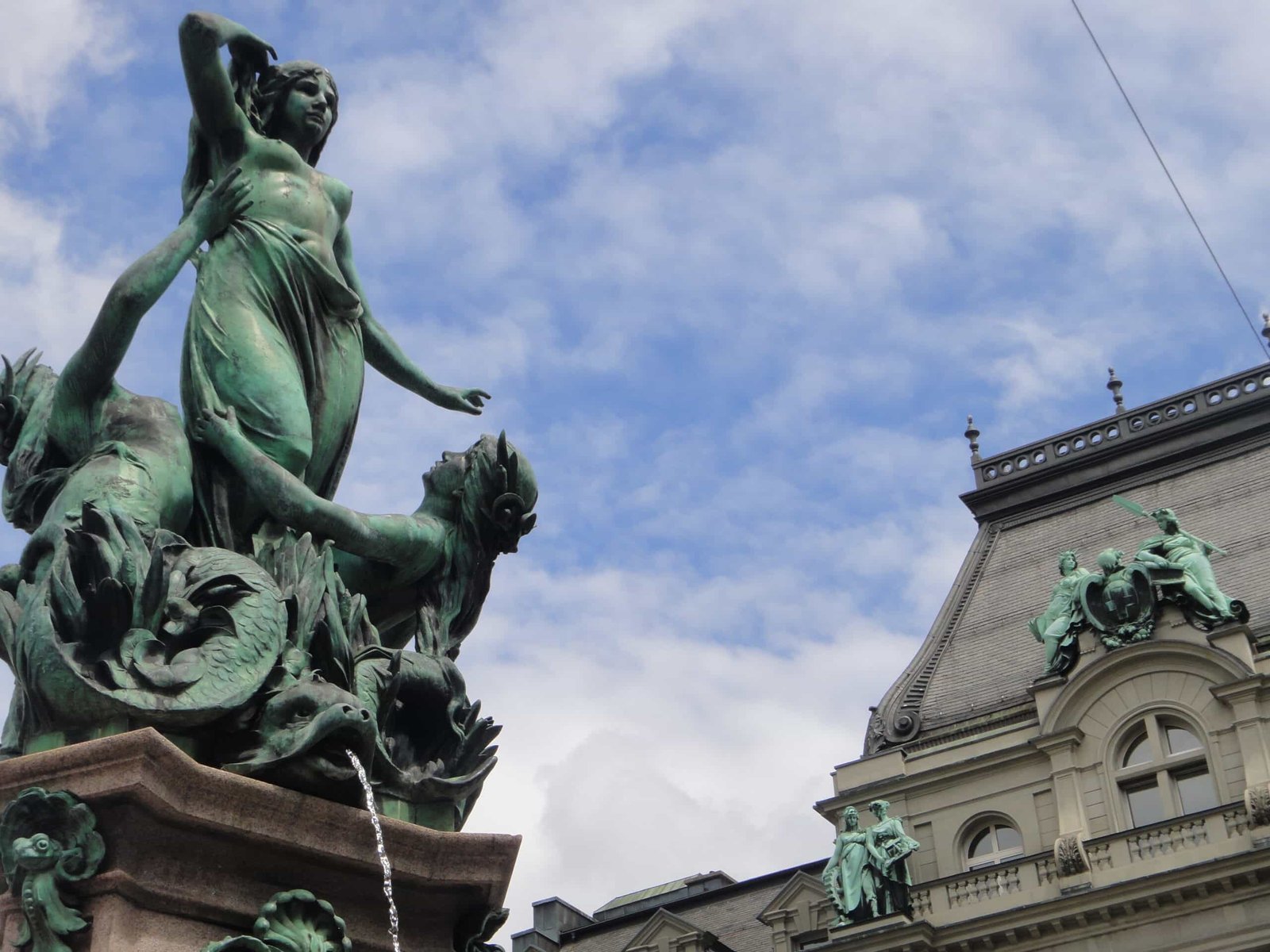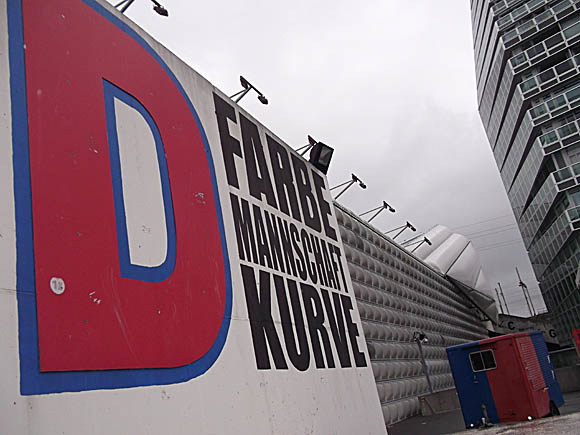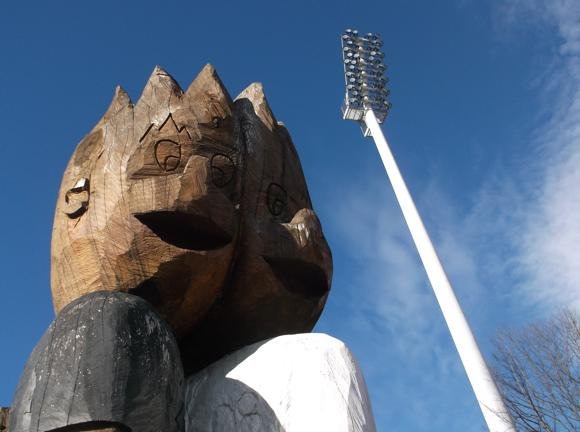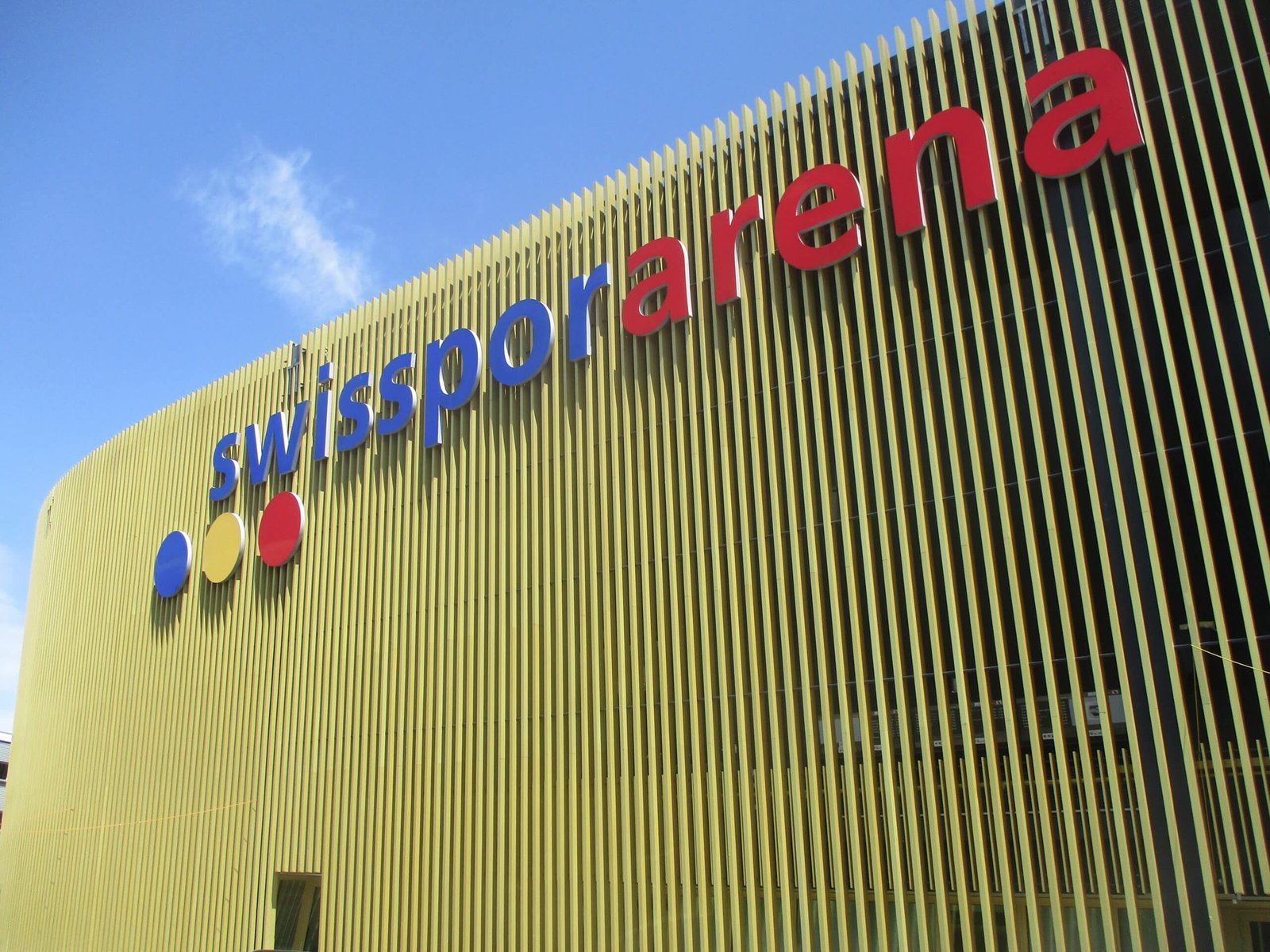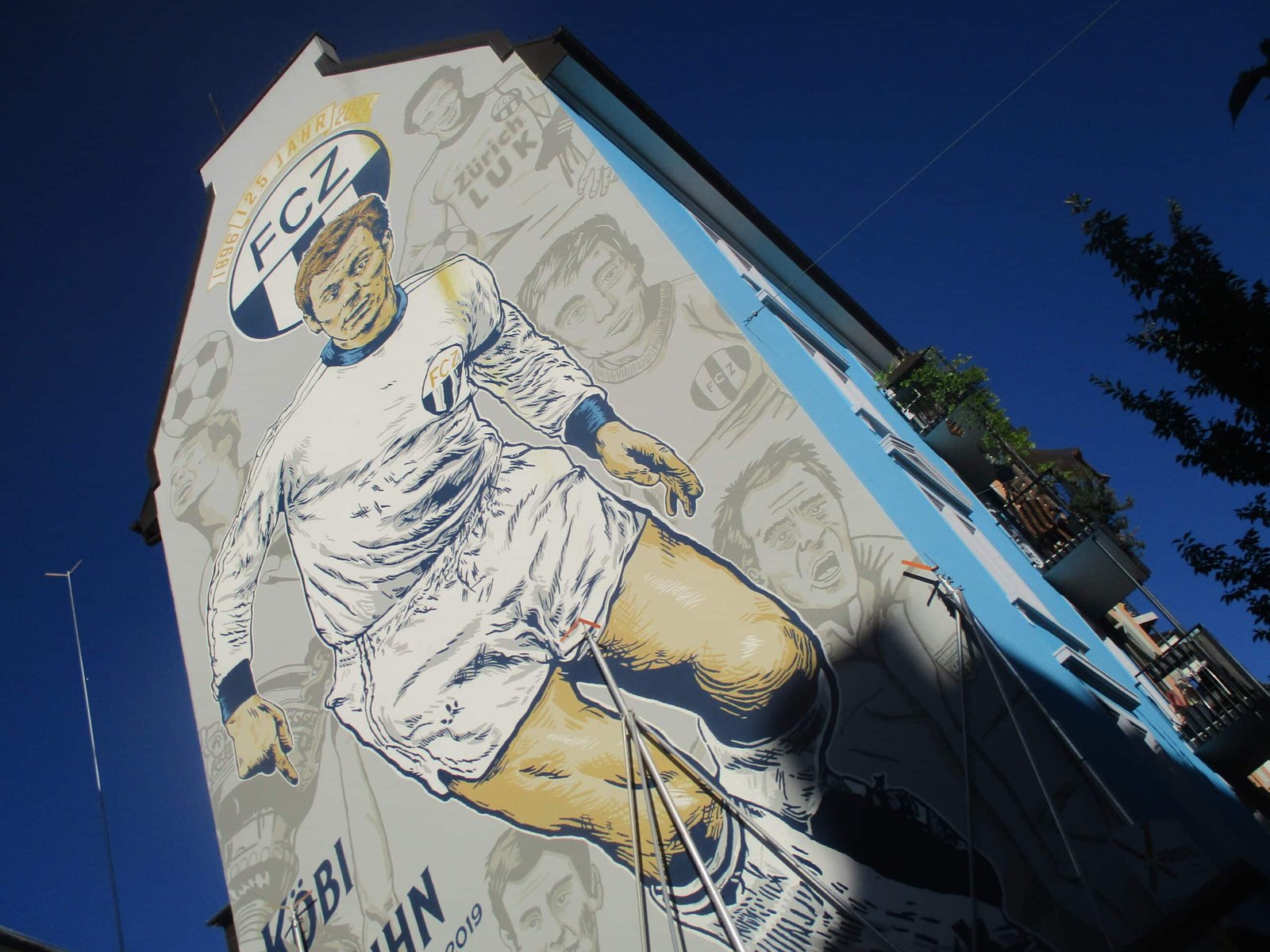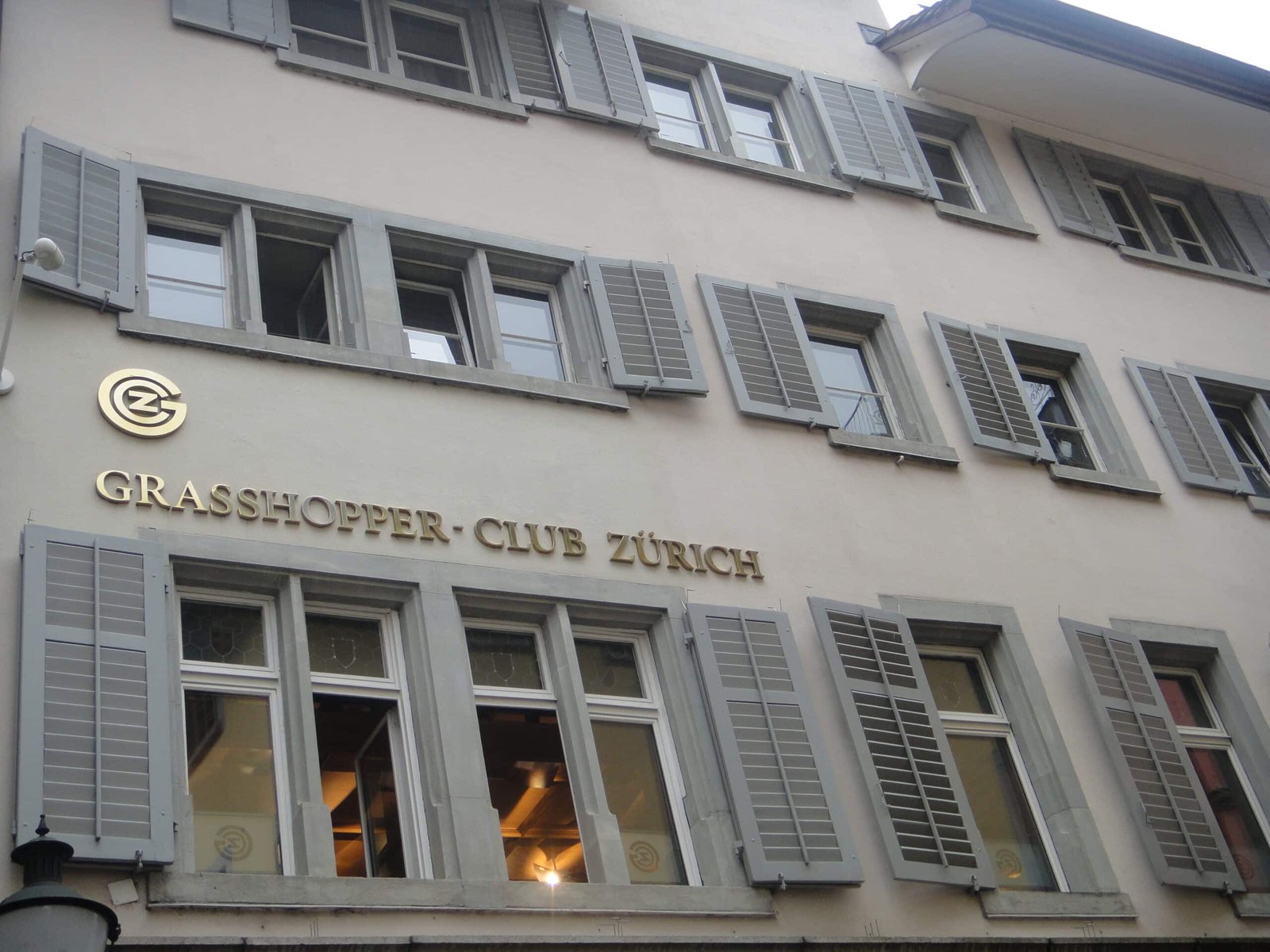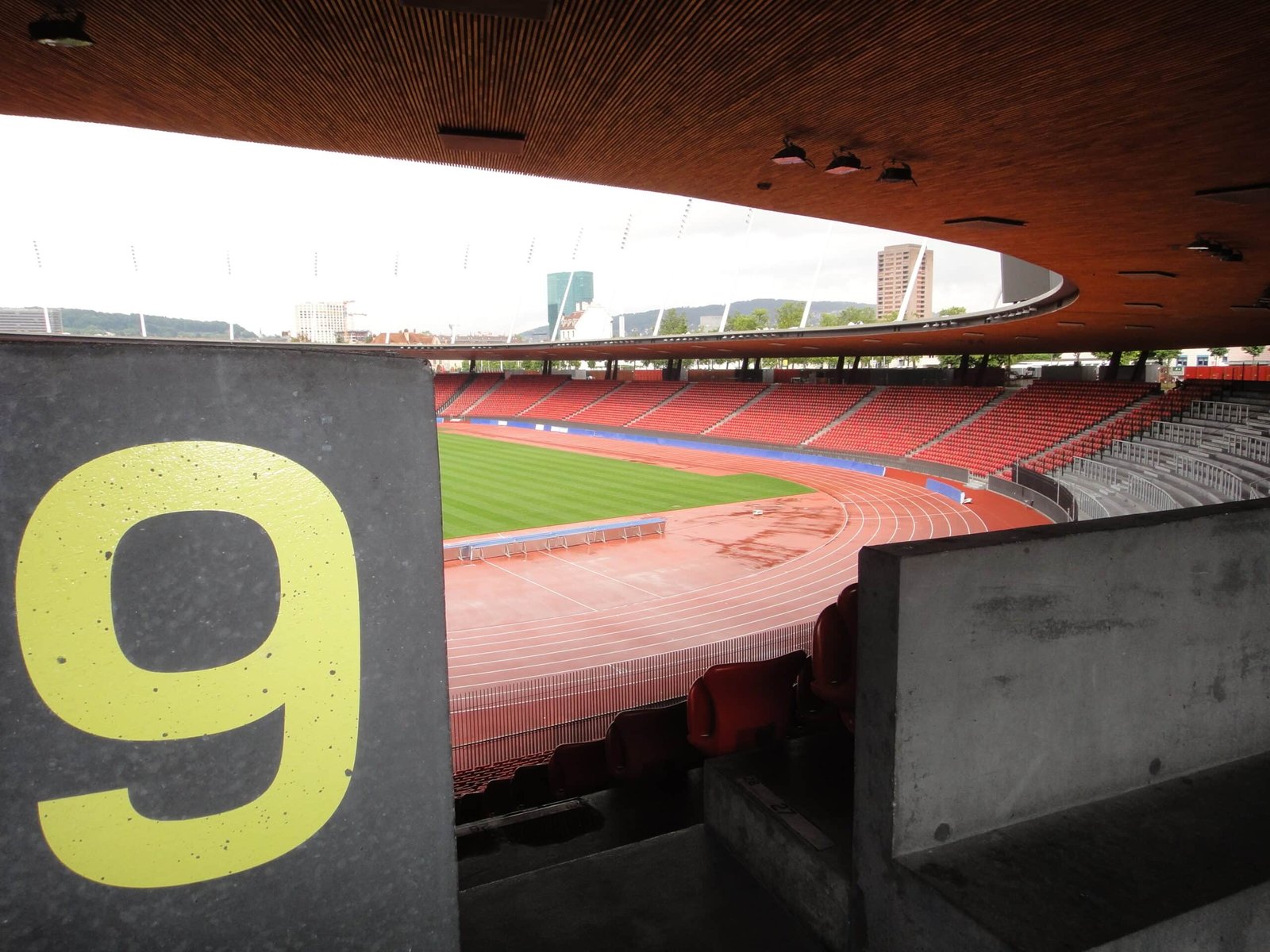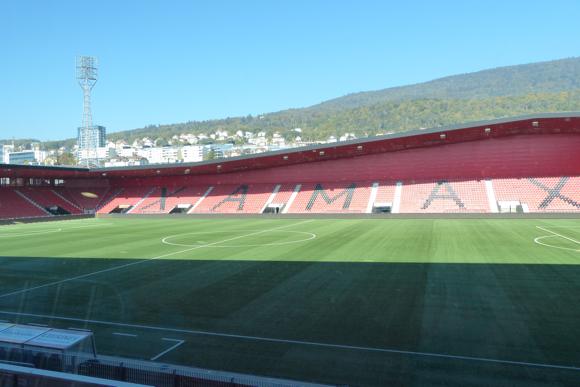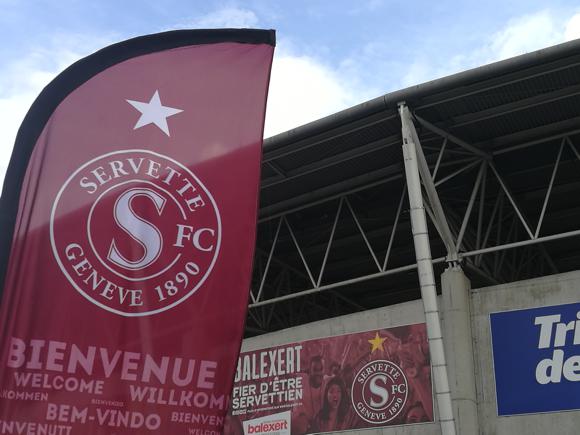A fan’s guide – the club from early doors to today
The oldest football club still operating on mainland Europe, FC St Gallen have had relatively meagre reward for some 120 years of competitive play.
Rarely out of the top flight since the early 1970s, St Gallen did win a rare Swiss title in 2000, moved into a new stadium in 2008 then made the group stage of the Europa League in 2013.
Until the unveiling of the AGF Arena, today going by its sponsored name of the kybunpark, St Gallen were based at the Espenmoos for almost a century. where St Gallen Frauen now play fixtures in the Swiss Women’s Super League. The ladies’ team have added another chapter to the gilded history of this revered ground, first opened in 1910, staging its first international two years later.

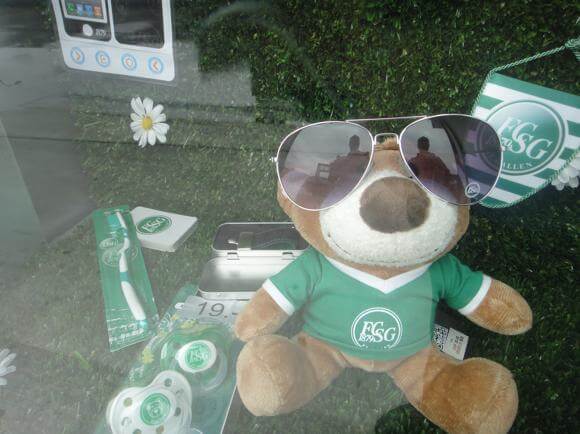

Even by the time St Gallen moved there in 1910, Grün-Weißen had already been crowned Swiss champions. Formed by ex-students from nearby Rorschach in 1879 and playing friendly matches from the early 1890s, Vereinigte (‘United’) FC St Gallen joined the Swiss Serie A in 1899.
Five years later, for once overcoming Grasshoppers Zürich in the Eastern Group of the five-team regional division, St Gallen went on to win the national play-off against Old Boys Basel and Servette of Geneva. The following season, order was restored when Grasshoppers won the Eastern Group and national title.
Despite hiring top coaches from England – later Ajax supremo Jack Reynolds, former England winger Billy Townley – St Gallen would continue to play in the shadow of the stronger sides from Zürich.



Relegated in 1932, St Gallen spent the immediate post-war seasons in the second, even third flight, until returning in the late 1960s. Winning a first Swiss Cup in 1969 under former German international Albert Sing, St Gallen made their European debut with an away-goals win over Danes BK Frem before a 4-0 tonking at Levski Sofia.
Picking up lesser silverware – Swiss League Cup, Swiss Indoor Cup – St Gallen maintained a top-flight presence with occasional forays into Europe. Ace Chilean striker lit up the Espenmoos for three seasons from 1988 before moving on to greater things at Real Madrid and Internazionale.
The arrival as coach of former Grasshoppers stalwart Marcel Koller in 1999 sparked little interest at first. Bringing over Ghanian striker Charles Amoah from his former club FC Wil, Koller also had the high-scoring full-back Marc Zellweger at his disposal.



The surprise package of the 1999-2000 season, St Gallen set off on a series of wins before gaining a vital 4-4 draw at Grasshoppers, reversing the home side’s 3-0 lead. The Green-and-Whites then won a first Swiss title in 96 years at Lucerne, Amoah being crowned top league scorer.
Despite an early Amoah strike, St Gallen fell 2-1 to Galatasaray in their Champions League debut, played at the Hardturm in Zürich. An unfortunate Zellweger own goal then opened proceedings in Istanbul, before Koller’s side brought the away-leg score to 2-2. A late Amoah goal saw a frantic last five minutes but St Gallen were unable to find a third away goal that would have taken them to the group stage.
There was better luck in the UEFA Cup, another Amoah goal knocking out Chelsea in Zürich. A late Bruges equaliser then ended a memorable European run.

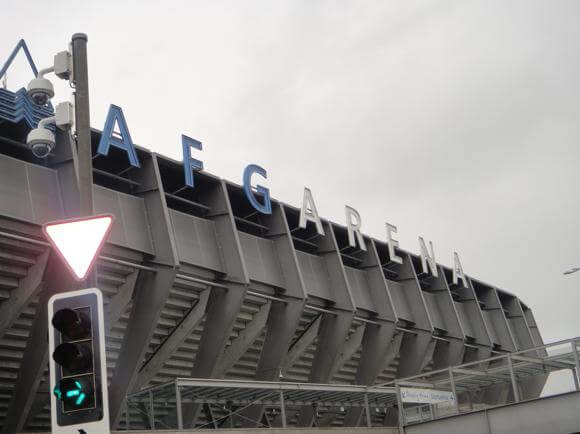
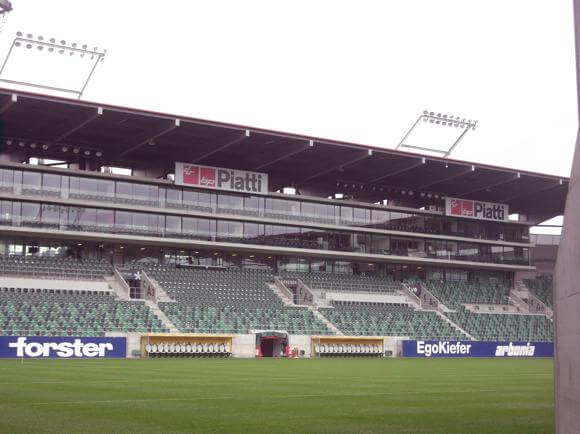
Within a year or so, Koller had gone to Grasshoppers and Amoah to Sturm Graz. Attention turned to the venerable Espenmoos, unfit to stage European fixtures. In March 2002, with 11,000 in attendance, a vital league game with FC Basel was abandoned as the stadium generator packed up.
The club had long been planning a new ground on the western outskirts of the city. Following an agreement with Arbon-based building suppliers AFG, Stadium West became the AFG Arena, the first Swiss ground to take a sponsor’s name.
Opened in May 2008 with a rare international appearance by Switzerland in St Gallen, the AFG Arena welcomed its host club two months later – for a Challenge League fixture. A relegation play-off defeat to Bellinzona had condemned St Gallen to the second tier. Goals from returning striker Moreno Merenda had the club back in the Super League within one season.



Relegated again then promoted again, St Gallen could thank the Ezequiel Scarione for their second swift return, the prolific Argentine playmaker then outscoring all-comers in the Swiss Super League in 2012-13. A third-place finish granted St Gallen passage to the Europa League, though without Kasimpasa-bound Scarione.
After a surprise 4-2 play-off win at Spartak Moscow, St Gallen duly made the group stage, notching home wins over Swansea and Kuban Krasnodar and being outclassed by Valencia.
Plodding domestic form saw former Luxembourg international Jeff Saibene give way to Germany journeyman coach Joe Zinnbauer, before Giorgio Contini took the reins in May 2017. A member of St Gallen’s title-winning team of 2000, Contini has had previous stints as reserve-team coach and joint manager, but he would soon be replaced by someone with no playing experience at all.



His managerial talents honed under the Red Bull yoke in Salzburg, German-born Peter Zeidler would lead St Gallen to two Swiss Cup finals, neither successful, in 2021 and 2022, making way for his compatriot, Enrico Maaßen in 2024. A shock penalty win at Trabzon – not an easy place to win a penalty shoot-out – allowed St Gallen to compete in the new-form Conference League.
No team of the 36 conceded more than St Gallen, although the public warmed to visits by Fiorentina and Guimarães.Despite a mediocre domestic league campaign, too, Maaßen remained in place for the start of the 2025-26 season.
Stadium Guide
The field of dreams – and the story behind it




Opened as the AFG Arena in 2008, the currently named kybunpark holds nearly 20,000, a figure nearly reached for derby games with Grasshoppers Zürich. Average gates are otherwise in the 12,000 range.
For international matches – Switzerland played the curtain-raising fixture here, a 3-0 win over Liechtenstein – this all-covered arena becomes an all-seater of 17,300 capacity. When St Gallen fans fill the home forster-Tribüne, sectors D2 and D3 are standing ones behind the west goal.
Visiting supporters are allocated Gästesektor 4 of the arbonia-Tribüne opposite, in the corner nearest the EgoKiefer-Tribüne along one sideline. The main stand, until recently known as the Piatti-Tribüne, now the RWD Schlatter, houses the VIP and business seats.
getting here
Going to the stadium – tips and timings

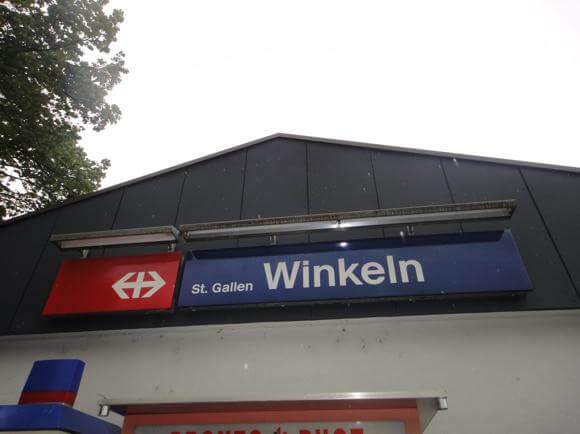
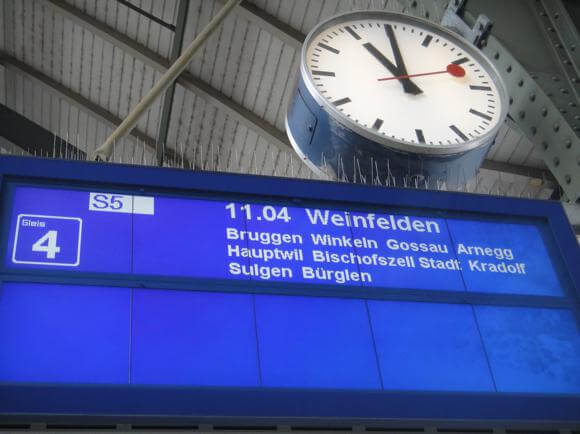

For those coming to St Gallen for the Women’s Euros 2025, travel across Switzerland by rail, bus, boat and tram is free for match-ticket holders from midnight before the game and until 5am the following day. The same goes for journeys across the venue city.
For Swiss domestic fixtures, public transport is free for match-ticket holders from 3hrs before kick-off to 3hrs after the final whistle.
The quickest way to the stadium is to take the S1 (direction Wil) or S5 train (direction Weinfelden) from St Gallen main station to Winkeln, two stops/five minutes away. Each is currently scheduled to leave on or just after the hour.
If you’ve just missed one, there’s the alternative of the regional train to Gossau, change, and back one stop to Winkeln, 15min overall journey time. Certain trains from Zürich Airport also run direct to Gossau. Trains back to St Gallen operate past 10pm, even on Sundays.
After arriving at Winkeln station, take the underpass below the rails then the street ahead of you, Herisauer Straße,. The shopping complex and stadium are about 7-8mins straight ahead.
The ground is also served by regular bus 1 every 20mins from the main station, journey time 20mins, stopping at Westcenter by the stadium. For the Women’s Euros, , a stadium shuttle service, Extrabus, will also be running to the stadium from the station and fan zone at Markplatz Bohl.
getting in
Buying tickets – when, where, how and how much

Unless Grasshoppers Zürich are in town, availability is rarely a problem.
There are several ways to buy tickets in advance. At the Shopping Arena (Mon-Wed, Fri 9am-7pm, Thur 9am-9pm, Sat 9am-5pm) by the stadium, the Info-Point at ground level is also a ticket service.
The main distribution agents are Starticket, both online and at many local outletssuch as the Post Office (Mon-Fri 7.30am-7.30pm, Sat 8am-4pm, Sun 3pm-6pm) outside the train station and Tourist Office (Mon-Fri 9am-6pm) on Bankgasse.
Match-day Tageskassen also operate, though with a SF5 levy.

Prices start at SF20 to stand with the home fans in the sectors D2/D3 – these will usually be taken. It’s also SF20 in the corner of the opposite end, B1, and SF30 behind that goal. You’ll pay SF35 to sit either side of the standing fans in the forster-Tribüne.
Seats in the sideline EgoKiefer Stand run from SF30-SF50, from corner to halfway line, and in the main stand it’s SF55-SF80, apart from the family area (A6).
Away fans pay SF20 if buying tickets through their club, SF25 in advance from any other outlet.
Under-5s enter free, 6-15s are charged half-price in the home end, full price in other areas of the ground apart from the Family Corner.
what to buy
Shirts, kits, merchandise and gifts


The main FC St Gallen store (Mon-Sat 9am-5pm, match days 2hrs before kick-off 30min after final whistle) is in the Shopping Arena, ground floor, by the Eingang West.
Merchandise includes woolly Alpine hats with earflaps, baseball caps bearing the proud foundation date of 1879, Swiss watches, FCSG monopoly games, branded cigars, shot glasses, beer glasses and spirit flasks.
Orange goalkeepers’ jerseys complement the green-and-white combinations of first and second kits.
You’ll also find a kiosks dotted around the stadium on match days.
Where to Drink
Pre-match beers for fans and casual visitors
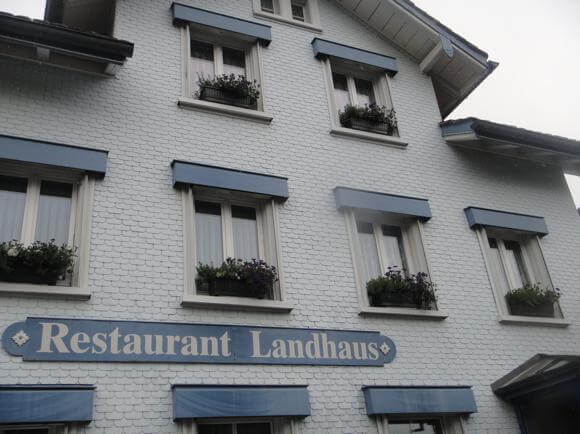
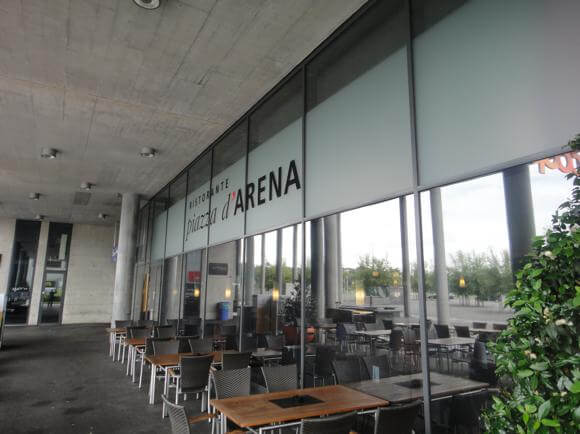
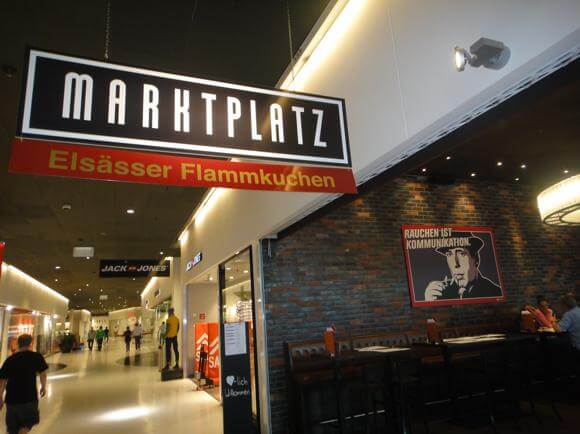
Arriving at Winkeln station, across the rails and into Herisauer Straße, typical Swiss bar/restaurant Landhaus Winkeln usually only operates during the week but opens specially on match days, 90min before kick-off and after the final whistle. The main kitchen closes and they serve Bratwurst and chips, and local St Galler Schützengarten beer in plastic glasses.
At the smaller Westcenter mall near the stadium, West Corner on level 2 offers beer, TV screens and meaty main dishes, as well as laptop tablets for customer use.
Of the outlets at the larger Shopping Arena by the ground, the Restaurant Arena by the West Entrance serves beer, cocktails and mocktails, screens showing match action.
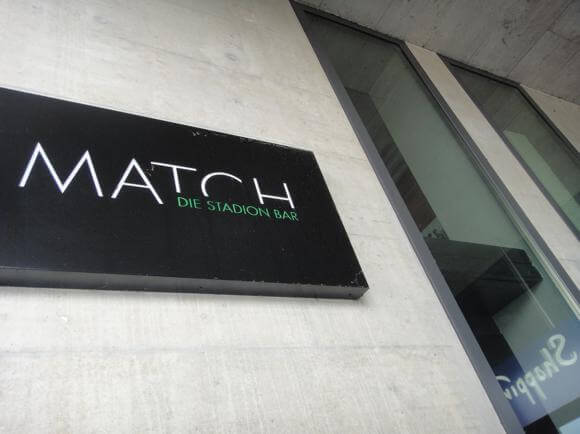


All payments at the stadium are with a Stadionkarte, available from orange-dressed vendors. Pre-paid cards are sold in SF20 and SF50 denominations, cash-only. Refunds are available from the Süd and West ticket windows from halfway through the second half until 30min after the final whistle.
Match-Die Stadion Bar is the main gathering place for home fans, behind the forster-Tribüne on the corner, decorated with framed black-and-white shots of FCSG action and mounted team shirts.


